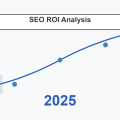Let’s get real—when it comes to small business ventures, every single cent counts.
Whereas big businesses can afford to throw thousands at SEO month in, month out, you need a slightly smarter thought process when it comes to how you utilise your resources.
That said, here’s where to focus those efforts for the maximum impact without breaking the bank.
Start With What You Can Control
Before you go spending your money, there are some very effective SEO things you can do yourself:
Google Business Profile – What is it and why is it important?
Your Google Business Profile (formerly known as Google My Business) is the lifeblood of any local business. It costs nothing, but it does take time.
This includes the following:
- Check you have correct business information.
- Take the time to create and refresh posts.
- You need to respond to reviews in a timely manner.
- And regularly include some nice pictures as well.
Website Basics – Take Note
For those with a shoestring budget, though, you can hit the ground running with what is necessary:
- Just make sure the business description is clear.
- Again, make sure to post accurate contact details.
- And the descriptions of your services or products.
- Lastly, don’t forget about the location details.
Free or Very Inexpensive, High-Impact Action
Content Creation
You know your business better than anyone. Start writing about:
- Frequently asked questions
- Industry insights
- How-to guides
- Service explanations
The key is writing naturally about what you know—don’t worry about being perfect; focus on being helpful.
DIY Technical SEO Basics
You don’t need to be a tech expert to handle these essential elements:
Website Speed Improvements
Here are free ways to speed up your site:
- Compress your images using free tools like TinyPNG
- Remove unused plugins
- Delete old drafts and unused media
- Keep your platform and plugins updated
Mobile Optimisation
With most searches happening on mobile, focus on:
- Test your site on your phone regularly
- Ensure text is readable without zooming
- Make buttons and links easy to tap
- Check load times on mobile data
Making the Most of Free Tools
Google Search Console
This free tool from Google is invaluable:
- Submit your sitemap using Rank Math
- Monitor search performance
- Identify technical issues
- Track mobile usability
Google Analytics
Set this up immediately to:
- Track visitor behavior
- Understand traffic sources
- Monitor page performance
- Identify popular content
Local SEO on a Budget
Citation Building
Start with free business directories:
- Yellow Pages
- True Local
- Local business associations
- Industry-specific directories
Review Management
Build your online reputation:
- Ask happy customers for reviews
- Respond to all reviews promptly
- Share positive reviews on social media
- Address negative feedback professionally
Content Strategy That Works
Blog Topics That Matter
Focus on content that answers real questions:
- Common customer problems
- Buying guides
- Industry tips
- Maintenance advice
Content Creation Tips
Keep it simple but effective:
- Write like you talk
- Use real examples
- Include location references
- Address specific customer needs
Social Media Integration
Choose Platforms Wisely
Avoid spreading yourself too thin by focusing on just one or two platforms where your customers can be most easily reached.
To gather this core, loving group of followers:
- Post regularly,
- Interact with them, and
- Put out good hashtags and pictures everywhere possible for sharing.
This handy technique also helps to escape the need of always being present everywhere in order for things to pass off smoothly.
Content Sharing Strategy
Maximise your content:
- Share blog posts
- Post business updates
- Highlight customer successes
- Feature team members
Keyword Research Without Paid Tools
Finding Target Keywords
Use these free methods:
- Google Autocomplete
- “People Also Ask” sections
- Related searches
- Your own customer questions
Implementing Keywords
Natural placement in:
- Page titles
- Headers
- Meta descriptions
- Content body
Building Authority Gradually
Local Networking
When you connect with your local community, it also brings the great benefit of establishing strong relationships and lets others be on an equal level with you.
Choose some business groups to network, some local events as a source of potential customers, and everything that complements your business as partners.
Get involved in community activities to strengthen trust and visibility, and make sure that your business is more recognized and valued locally.
Online Presence Building
Create profiles on:
- Industry websites
- Professional associations
- Local business groups
- Relevant forums
Measuring Success Without Big Budgets
Track Key Metrics
A budget does not limit success as long as the right measures are taken.
Monitoring web visits, enquiries, SEO rankings, and customer feedback can all be tracked and measured to help a business evaluate where its strengths and weaknesses lie.
Focusing on these few prime indicators allows companies to monitor their growth and pivot accordingly without extraneous costs.
Regular Review Process
It’s important to maintain this routine service on a regular basis if you want your life to go smoothly.
Businesses should regularly check up on the Google Analytics data, search console reports, customer feedback platforms, and how they are using their social media to make sure everyone stays up-to-date with what’s going on.
Its distinguishing feature lies in that it offers timely improvement to aid companies in optimising their strategies for success.
Common Budget-Friendly SEO Mistakes to Avoid
Don’t Waste Time On
Avoid common budget-friendly SEO mistakes to get the best results.
Buying cheap links can harm your website’s reputation, while keyword stuffing makes content unreadable and hurts rankings.
Copying competitor content can lead to penalties, and over-optimising can make pages look unnatural. Focus on quality strategies instead to improve SEO without wasting time or resources.
Focus Instead On
Please look at all these factors and stop using the blackhat techniques or shortcuts. Just use quality content with a good user experience, local relevance, and people engagement.
Well-crafted, useful information draws readers in, while a fluid and easy-to-browse site keeps them engaged.
This way, businesses can target reach to the right audience, and meaningful interaction on these networks will bind consumers with them with trust and loyalty.
So these tactics ensure long-term SEO success without the risks attached to ineffective approaches.
Growing Your SEO Over Time
Month 1-3 Focus
- Set up Google Business Profile
- Install Analytics and Search Console
- Optimize existing content
- Start collecting reviews
Month 4-6 Activities
- Create new content
- Build local citations
- Engage on social media
- Network locally
Month 7-12 Development
- Expand content
- Build relationships
- Monitor performance
- Adjust strategy
Making Every Dollar Count
Free Tools to Use
- Google Search Console
- Independent Analytics
- Google Analytics
- Google Business Profile
- Bing Webmaster Tools
Worth Paying For
When budget allows:
- Quality hosting
- Basic SEO plugins
- Professional images
- Occasional professional help
DIY SEO Schedule
Weekly Tasks
- Post new content
- Update Google Business Profile
- Respond to reviews
- Check analytics
Monthly Tasks
- Technical checks
- Content planning
- Performance review
- Competitor analysis
Quarterly Tasks
- Detailed analytics review
- Strategy adjustment
- Content audit
- Link building review
When to Seek Help
Know Your Limits
Consider professional help for:
- Technical issues
- Major updates
- Strategy planning
- Specific campaigns
Budget Planning
Save up for:
- Occasional audits
- Strategic advice
- Technical fixes
- Content creation
Moving Forward
Building Momentum
Focus on consistent effort:
- Regular updates
- Steady content creation
- Ongoing optimization
- Community engagement
Scaling Up
As budget allows:
- Increase content production
- Expand local presence
- Build more citations
- Invest in tools
Final Tips for Success
Remember these key points:
- Consistency beats perfection
- Focus on user value
- Build genuine relationships
- Track what works
Your small business can compete in SEO by:
- Being strategic with resources
- Focusing on local presence
- Creating quality content
- Building genuine connections
It doesn’t matter if you don’t have much cash right now. Like everyone else’s, you can begin by laying down some basics. Keep going, even if it’s slow. Remember, your small actions will compound and will surely make an impact on your online presence. Concentrate on what you can do and don’t dwell too much on the negative side.
Success lies in working from the bottom up, sticking to a resolution, and gradually expanding the range of your efforts as you can.
Just keep on giving your clients what they want; and their successful SEO results will follow.









